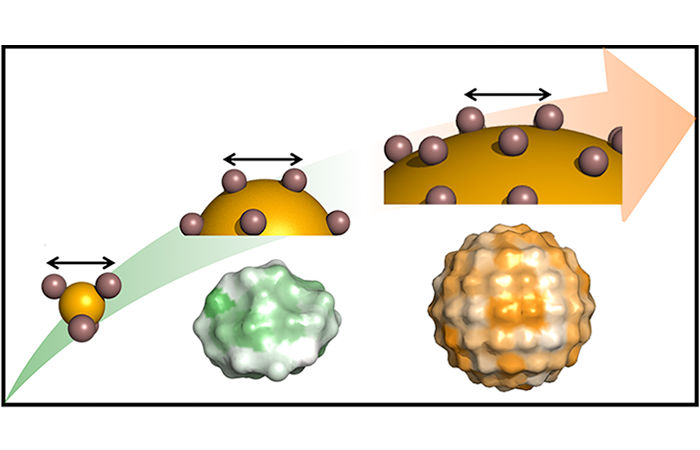Center for the Exascale Simulation of Materials in Extreme Environments

A new MIT research effort to advance the state-of-the-art in predictive simulation
The Center for the Exascale Simulation of Materials in Extreme Environments (CESMIX) seeks to advance the state-of-the-art in predictive simulation by connecting quantum and molecular simulations of materials with state-of-the-art programming languages, compiler technologies, and software performance engineering tools, underpinned by rigorous approaches to statistical inference and uncertainty quantification.
Our motivating problem is to predict the degradation of complex (disordered and multi-component) materials under extreme loading, inaccessible to direct experimental observation. This application represents a technology domain of intense current interest, and exemplifies an important class of scientific problems — involving material interfaces in extreme environments.
Key research thrusts will include:
- Development of compiler technologies aimed at both portability and composable performance on heterogeneous architectures;
- High-level and new domain-specific languages;
- Differentiable programming with new and legacy software;
- Software tool chains that facilitate uncertainty quantification and inference across scales.
Taking advantage of these capabilities, we will develop:
- Ab initio computational methods for modeling disordered materials at high temperatures;
- Inference-based methods for coarse-graining quantum mechanical interaction potentials with quantified uncertainty;
- More accurate and efficient hypersonic flow computations.
Our simulations will be supported by a unique in-house source of high-temperature validation data, and ultimately realized on exascale computational hardware.

Project participants:
The project involves participation from faculty and researchers spanning five MIT departments and the college, with eight serving as co-principal investigators (PI) from the Center for Computational Science and Engineering (CCSE), Computer Science and Artificial Intelligence Laboratory (CSAIL), and the Statistics and Data Science Center (SDSC).
Principal investigators
- Youssef Marzouk, PI, Aeronautics and Astronautics (AeroAstro), CCSE, SDSC
- Saman Amarasinghe, Electrical Engineering and Computer Science (EECS), CSAIL
- Alan Edelman, Math, CCSE, CSAIL
- Nicolas Hadjiconstantinou, Mechanical Engineering (MechE), CCSE
- Asegun Henry, MechE
- Heather Kulik, Chemical Engineering, CCSE
- Charles Leiserson, EECS, CSAIL
- Jaime Peraire, AeroAstro, CCSE
Research scientists
- Jayanth Jagalur-Mohan (uncertainty quantification)
- Cuong Nguyen (chief software architect; design, development, and integration of software stack)
- Mehdi Pishahang (experimental validation)
- TB Schardl (parallel compiler technologies and software performance engineering)
Postdocs
- Emmanuel Lujan (Julia in HPC)
-
Mathew Swisher (molecular modeling of material degradation; software engineering for LAMMPS)
PhD students
- Valentin Churavy (Julia in HPC; GPU and parallel connections to Julia, workflow management)
- Teo Collin (domain-specific languages)
- Drew Rohskopf (reactive potential development)
- Dionysios Sema (interface between classical and ab initio simulations; reactive potential development)
- Loek Van Heyningen (hypersonic flow modeling and simulation)
MEng students
- Helen He (performance engineering of molecular dynamics simulations)
- Tim Kralj (integrating the Julia and OpenCilk runtime system)
External collaborators
- Michael Herbst, RWTH Aachen (DFT methodologies and math/CS interfaces)
CESMIX is based in the Center for Computational Science and Engineering within the MIT Schwarzman College of Computing and is supported by the Department of Energy’s Predictive Science Academic Alliance Program (PSAAP-III).